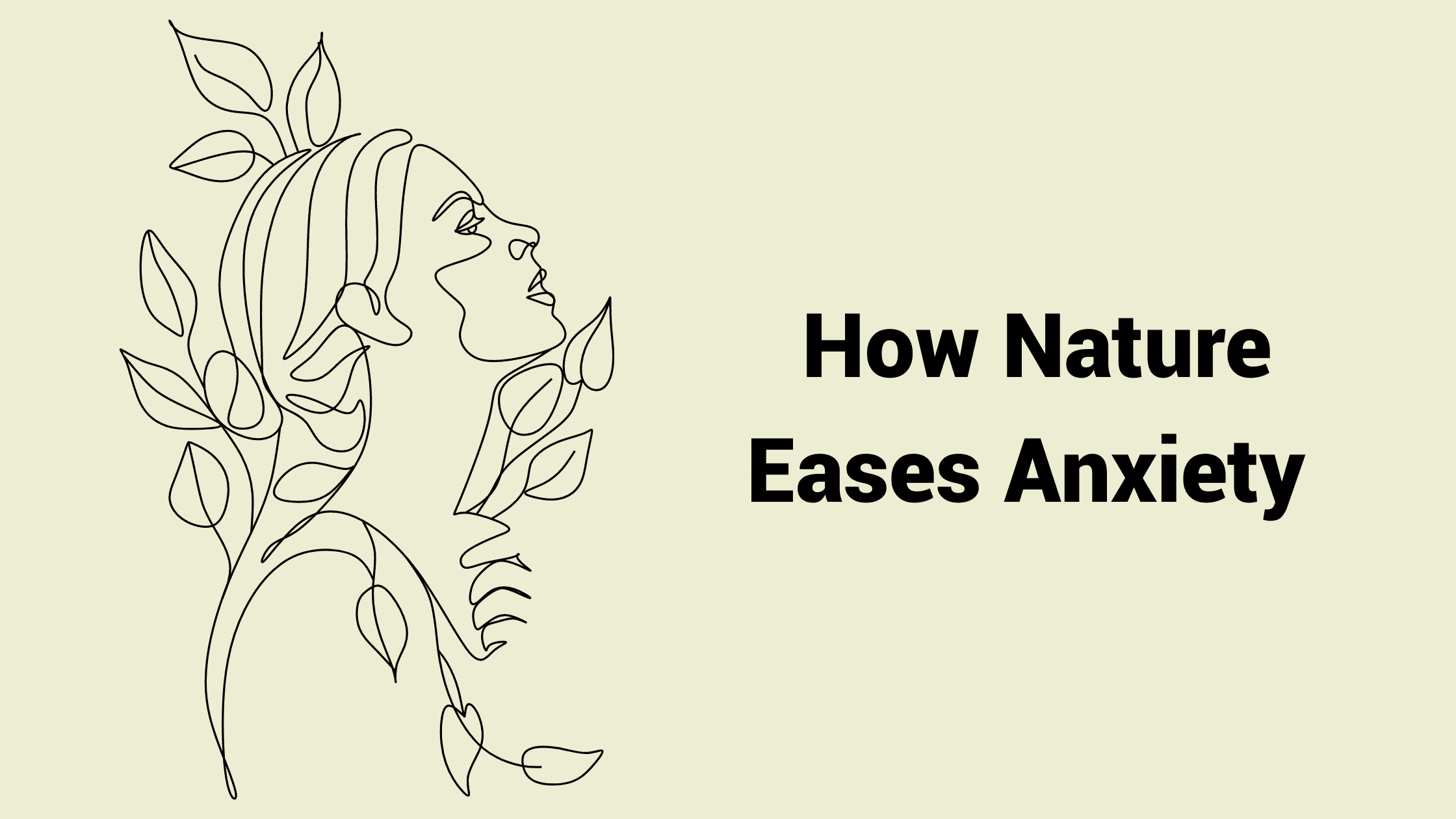
How Nature Eases Anxiety
Most researchers won’t come outright and say that modern society causes anxiety in humans. After all, no one wants to hear that the last two thousand years of human development have made us more stressed out. But they will admit that there’s something of an “anxiety epidemic” going on. Experts agree factors like finances, relationships, politics, work, and other variables are a significant cause of anxiety,
Finances are the single biggest cause of stress in the world today, according to a survey conducted in December of 2020. The survey showed that 73% of American adults – nearly 3 out of 4 – cited finances as the biggest cause of stress. Interestingly enough, the second-biggest stressor was politics, with 59% of Americans reporting it as a significant cause of anxiety.
Another one of the biggest causes of anxiety today is social media. There’s plenty of data that statistically shows social media causes anxiety, stress, and depression. That’s a huge problem, considering most Americans spend about 10 hours in front of a screen these days. Clinicians have even begun considering prescribing social media breaks to treat these conditions.
Anxiety Disorders and What They Feel Like
Researchers believe that anxiety is somehow connected to the human “fight or flight” response. But while our ancient ancestors had to worry about saber-tooth tigers jumping out at them from the bushes, we’re more concerned with ending up homeless or being the butt of a joke. It’s hard to put the feeling of anxiety into words. One thing that we do know for sure is that anxiety feels “bad.” It’s like a haze of worry and unease that clings to everything around you.
And here’s the worst part: when you’re anxious, it’s all you can focus on. You may end up pacing back and forth as your mind races, your thoughts spiraling. Or, you may be completely paralyzed with anxiety, unable to do anything but obsess over the feelings of worry and fear that permeate your thoughts.
Some people develop full-blown anxiety disorders outside of your run-of-the-mill type of stress. A few of the most common include:
- PTSD: one of the best-known and most-researched anxiety disorders. PTSD arises from a specific scary or shocking event. It’s common among combat veterans and survivors of abuse alike.
- Social Anxiety Disorder: do you ever feel nervous or worried about a social situation? That’s similar to Social Anxiety Disorder but on a much smaller scale. Those who suffer from Social Anxiety Disorder have the same feelings, but they’re so intense that they interfere with daily life.
- Generalized Anxiety Disorder: this is one of the scariest anxiety disorders out there. In Generalized Anxiety Disorder, any input can trigger paralyzing anxiety at any time. Even events that don’t trigger it one day could trigger it the next. Fortunately, it’s fairly rare and only seems to affect 2% of the population.
- Phobias: There are countless niche phobias outside of these macro-level anxiety disorders. Some people have a physical reaction to extreme heights. Others may be more extreme where they are afraid to leave their homes. Remember the lady on Maury that was afraid of mustard? Phobias come in all shapes and sizes.
How Can Nature Benefit Mental Health?
One big takeaway from this data is that many of our largest stressors are things that we have little to no control over. After all, how can we overcome financial stress without sinking a significant portion of our free time into developing our skills and applying for jobs? And outside of voting, how are you supposed to impact the political realm to make you less stressed?
The real solution may not be to try and fix these problems at all. Instead, we can seek help from an old friend: nature. Here are a few ways that nature can ease anxiety.
Practice Mindfulness or Meditate
Ever wonder why people who meditate always seem to be so centered? We’re not exactly sure why that is, but there is something to it. Research has shown that meditation can quantifiably reduce feelings of stress and anxiety. And it doesn’t take that long – you can see results with just 30 minutes of meditation per day.
Stay Active in Nature
Staying active is one great way to channel anxiety. According to some research, being active is one of the best natural ways to ease stress. Being active releases “feel good” chemicals in your body, called endorphins, that literally force your brain to let go of stressed or anxious feelings.
That’s not all, though. Being active appeared to be even more effective at relieving stress than typical treatments like pharmaceuticals. In addition, getting into a solid, active routine can help prevent anxiety from ever rearing its ugly head in the first place. Like meditation, it doesn’t take that much exercise to reduce anxiety. Just 30 minutes per day can be enough!
Relieve Anxiety Naturally with CBD
Usually, staying on top of your anxiety and preventing it from striking in the first place is the best natural way to ease anxiety. But if you’re already beginning to feel stressed and need a quick, proven way to release all that anxious energy, CBD may be able to help. Researchers have discovered that CBD appears to be able to banish daily feelings of stress and anxiety. Not only that, but the compound also may be an effective way to treat full-blown anxiety disorders. And since CBD develops naturally within hemp plants as they mature, it’s one of the best holistic ways to chill out. If you’re interested in using CBD to help reduce your anxiety, Relive Everyday can help. Check out our full selection of CBD products and find the best one to suit your specific needs.